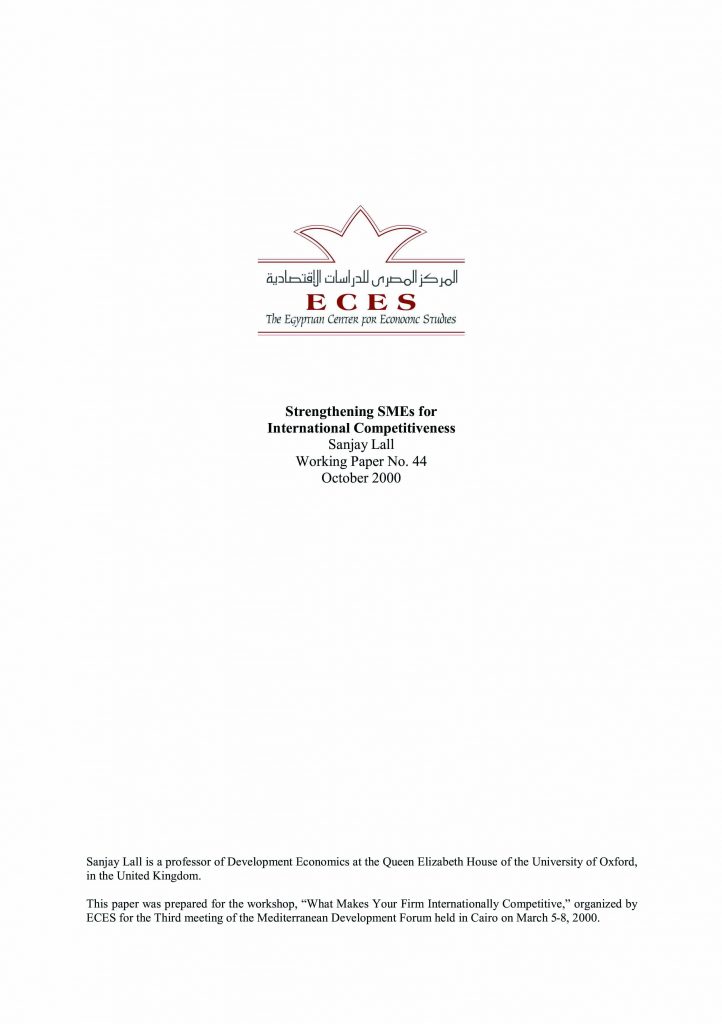Abstract:
With increased globalization, accelerated technical change and the growing demand for higher quality modern products, many traditional small and medium sized enterprises (SME), in developing countries face closure or very difficult upgrading. Even modern SMEs in developed countries face very difficult competitive challenges in the emerging setting. This paper ultimate aim is to lay out some general principles of support to help increasing the competitiveness of SME in developing countries. It starts by identifying three sets of competitive problems that SME are currently facing. The first set are inherent to being small, the second reflects distortions in markets and institutions and the third are caused by policy intervention. Drawing on the experience of supporting SME in the UH and some East Asian countries, the study concludes that while a conducive business environment and private support mechanisms are necessary conditions for SME promotion, they are not sufficient. Provocative policies are needed to promote SME competitiveness, and while part could be self-financed, a large component may need to be subsidized. It also stress that the success of such policies should be based on a thorough understanding of SME strengths and weakness, and should also be geared to each country’s conditions and institutions.

